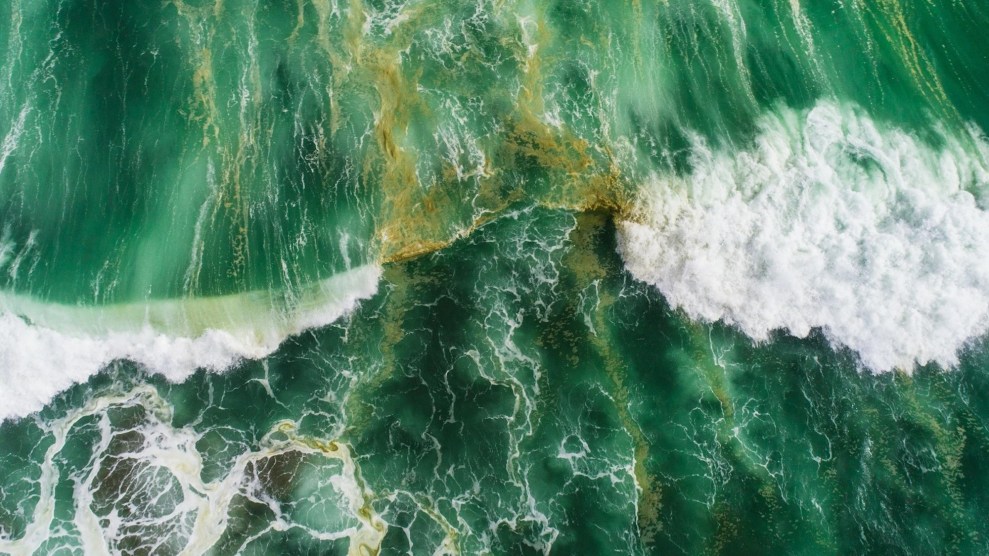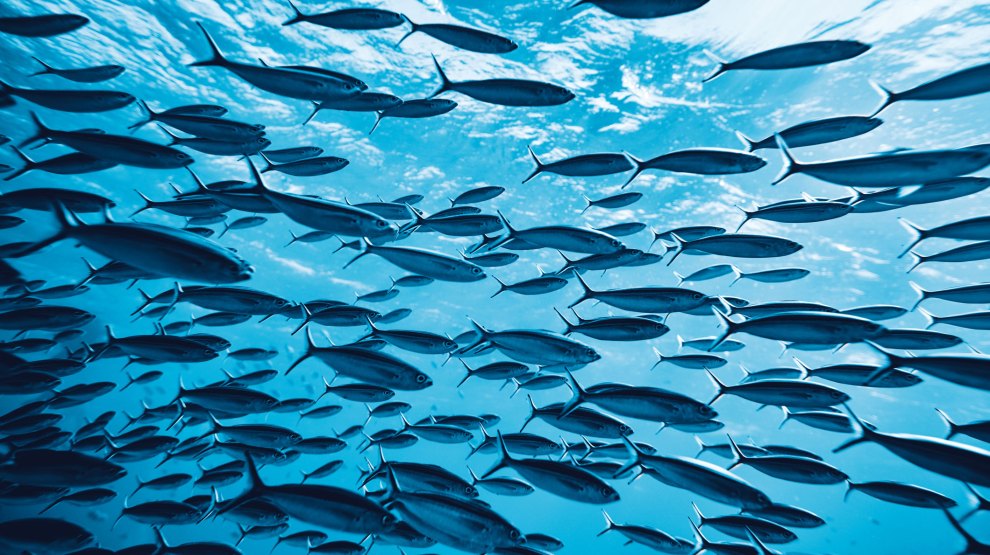
Aerial view of waves splashing in sea that are a green-ish color.Nazar Abbas Photography/Getty Images/Grist
This story was originally published by Grist and is reproduced here as part of the Climate Desk collaboration.
More than half of the world’s oceans have changed colors in the past 20 years, becoming more green than blue. The culprit? Climate change. In a study, published last week in Nature, decades worth of research showed 56 percent of the world’s oceans experienced color change between 2002 to 2022.
The ocean changes color for many reasons, such as light bouncing off of particles and sediments in the water, and decaying organic matter, but the main color-changing factor is varying populations of phytoplankton: tiny plantlike microbes that capture and store carbon dioxide and are considered the foundation of the marine food chain. Phytoplankton contains chlorophyll, like terrestrial plants do, and scientists involved in the study were able to monitor ocean health by studying changes to chlorophyll in phytoplankton and measuring how much blue and green light were reflected from the surface to satellites in space.
Much of the ocean appears blue to the human eye, but the ocean’s color actually contains a mix of wavelengths, including blue, green, and even red. Using data gathered from the Moderate Resolution Imaging Spectroradiometer also known as MODIS, on NASA’s Aqua satellite, researchers were able to utilize sensors that recognize colors too subtle for human eyes to differentiate, helping scientists confirm that the world’s oceans are changing color. Additionally, researchers found tropical ocean regions near the equator have become steadily greener over time as opposed to other parts of the world
The study’s authors say that natural instances, like seasonal or yearly variations to phytoplankton blooms, don’t explain the oceans’ shift in color, and don’t account for the change. Instead, researchers say the greening might better be explained by carbon dioxide absorption by plankton and algae communities and could signal an even more serious problem: Oceans absorb nearly 25 percent of the world’s carbon emissions and may not be able to absorb more in the future.

















